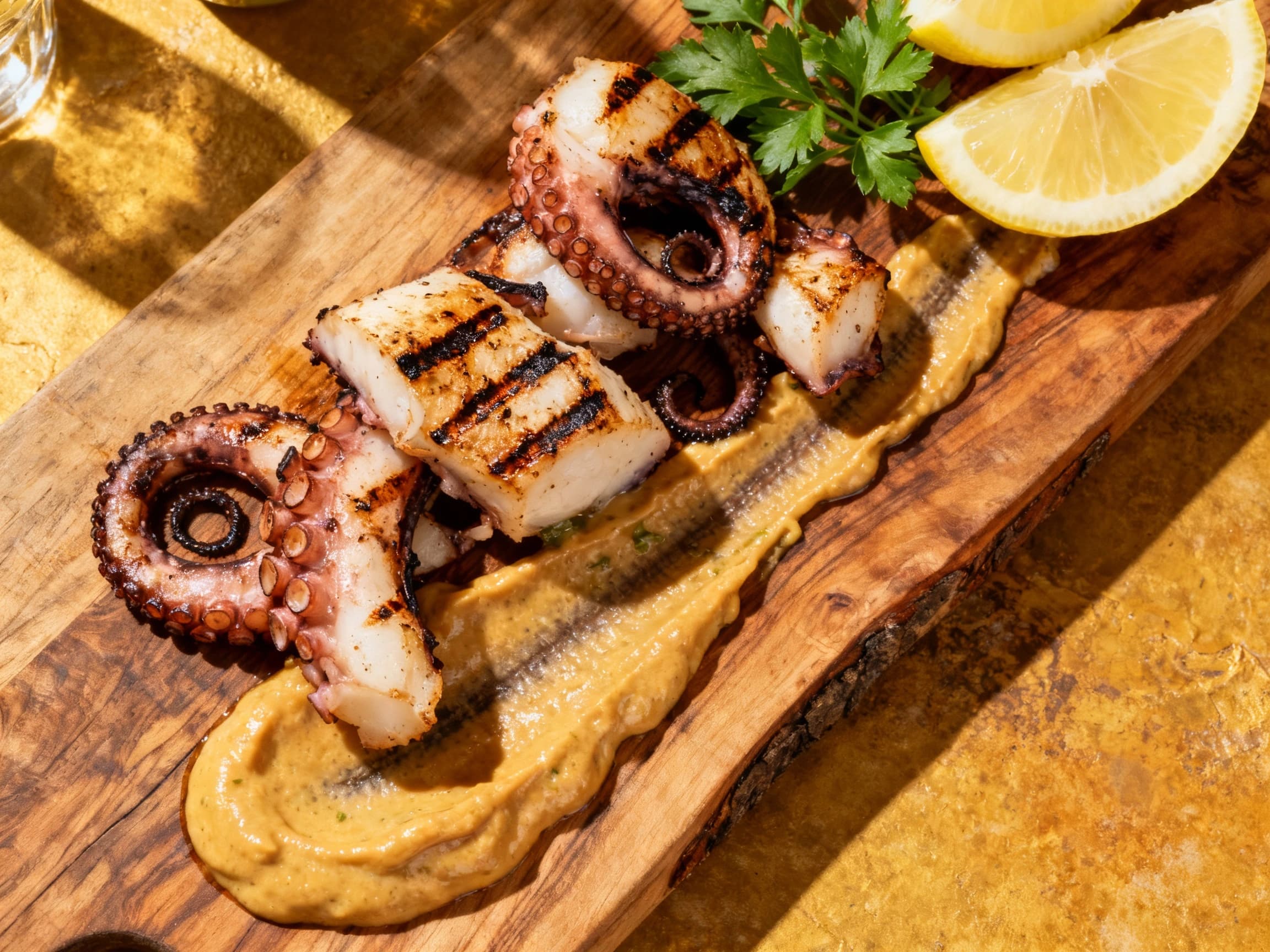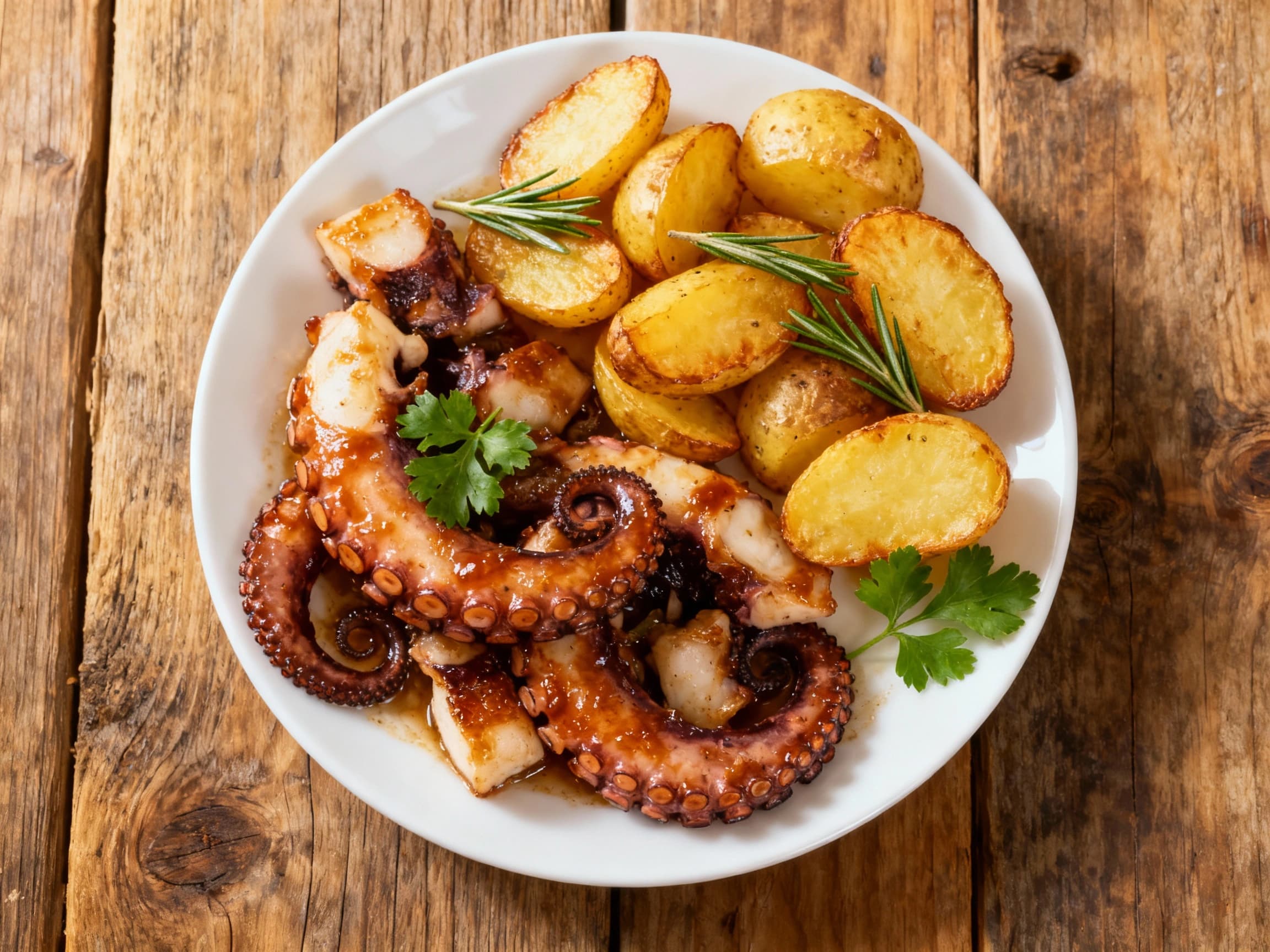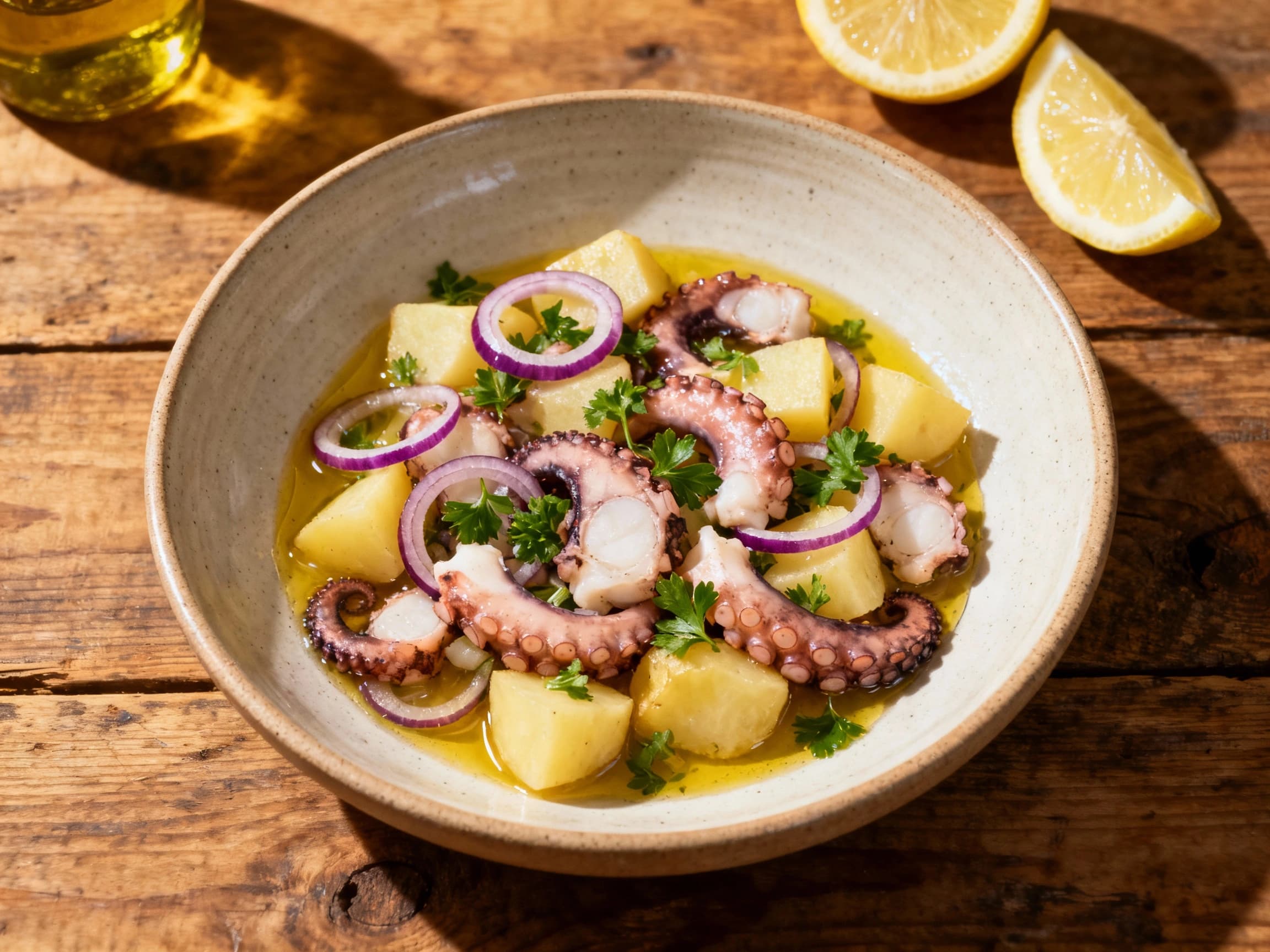
Pulpo a la Gallega
Pulpo a la Gallega
- Country
- Spain
- Region
- Galicia
- Recipes
- 3 Recipes
Origins & Characteristics of Pulpo a la Gallega
Pulpo a la Gallega, meaning 'Galician-style Octopus,' is a quintessential tapa hailing from the northwestern Spanish region of Galicia. This dish's origins are deeply rooted in the maritime culture of the Galician coast, where octopus has been a staple food for centuries due to the rich fishing grounds off its shores. The preparation of Pulpo a la Gallega is elegantly simple, focusing on the quality of the octopus itself. Traditionally, whole octopuses were boiled in large copper pots, often with a bay leaf, until tender. The key to achieving the perfect texture is precise cooking time; overcooked octopus becomes tough, while undercooked is unappetizing. The boiled octopus is then typically cut into bite-sized pieces using kitchen scissors and generously sprinkled with coarse sea salt, sweet or smoked paprika (pimentón), and a drizzle of good quality extra virgin olive oil. The type of paprika used is crucial, as it imparts both color and flavor, with 'pimentón de la Vera' being a popular choice for its smoky notes. This dish holds significant cultural importance in Galicia, often served at local festivities, family gatherings, and, most commonly, in 'pulperías' – specialized taverns dedicated to serving octopus. The tradition of enjoying Pulpo a la Gallega extends throughout Spain, where it is a beloved tapa in bars and restaurants. Its simplicity and robust flavors have also led to its popularity internationally among lovers of Spanish cuisine. While no single chef or historical figure is solely credited with its invention, the dish embodies the communal spirit of sharing small plates, or 'tapas,' which is a hallmark of Spanish culinary culture. The port city of Ourense is particularly renowned for its pulperías, which have preserved and perfected the traditional methods of preparing this iconic dish.
History of Pulpo a la Gallega
Octopus consumption becomes widespread along the Galician coast.
Development of specialized 'pulperías' for serving octopus dishes.
Pulpo a la Gallega gains popularity as a staple tapa across Spain.
First recorded recipe for Pulpo a la Gallega in a Galician cookbook.
Increased international recognition of Spanish tapas, including Pulpo a la Gallega.
UNESCO recognizes the Mediterranean diet, indirectly highlighting Spanish culinary traditions.


